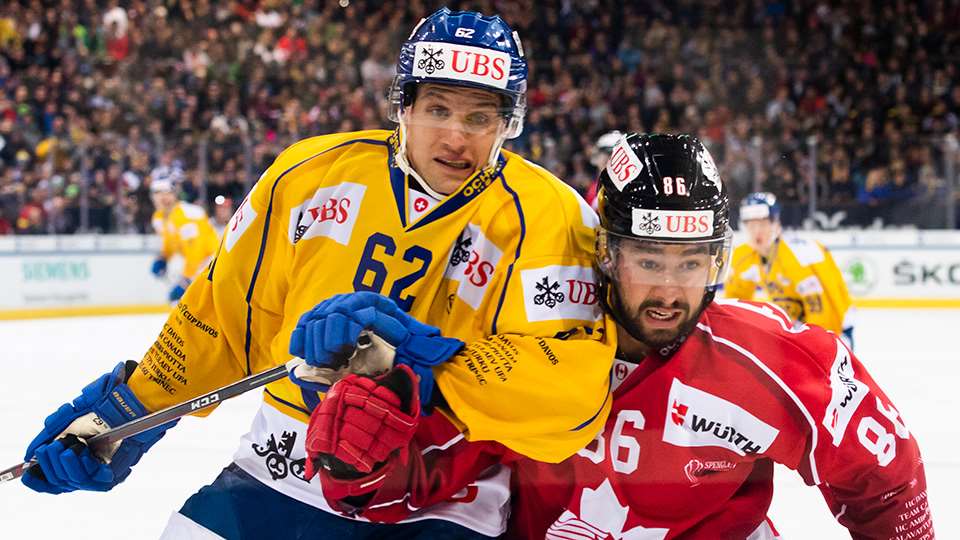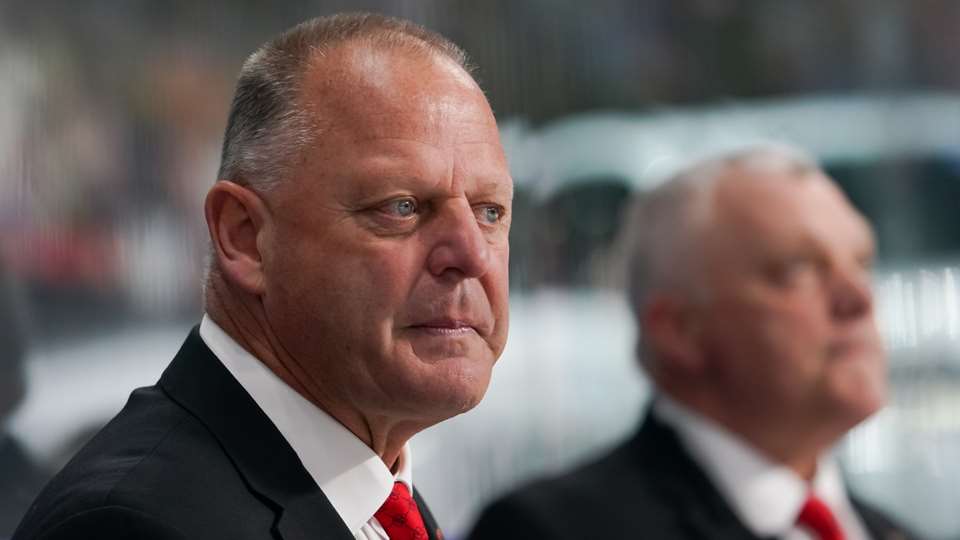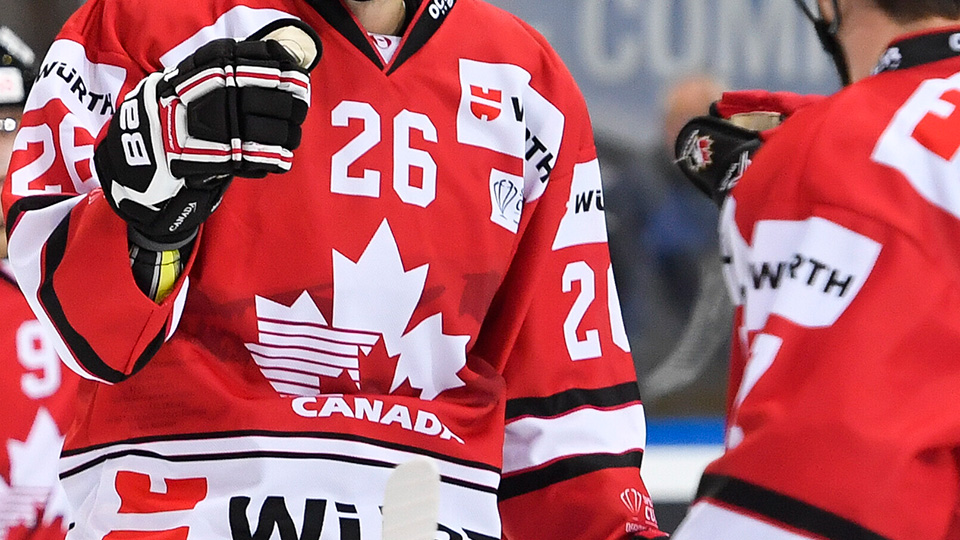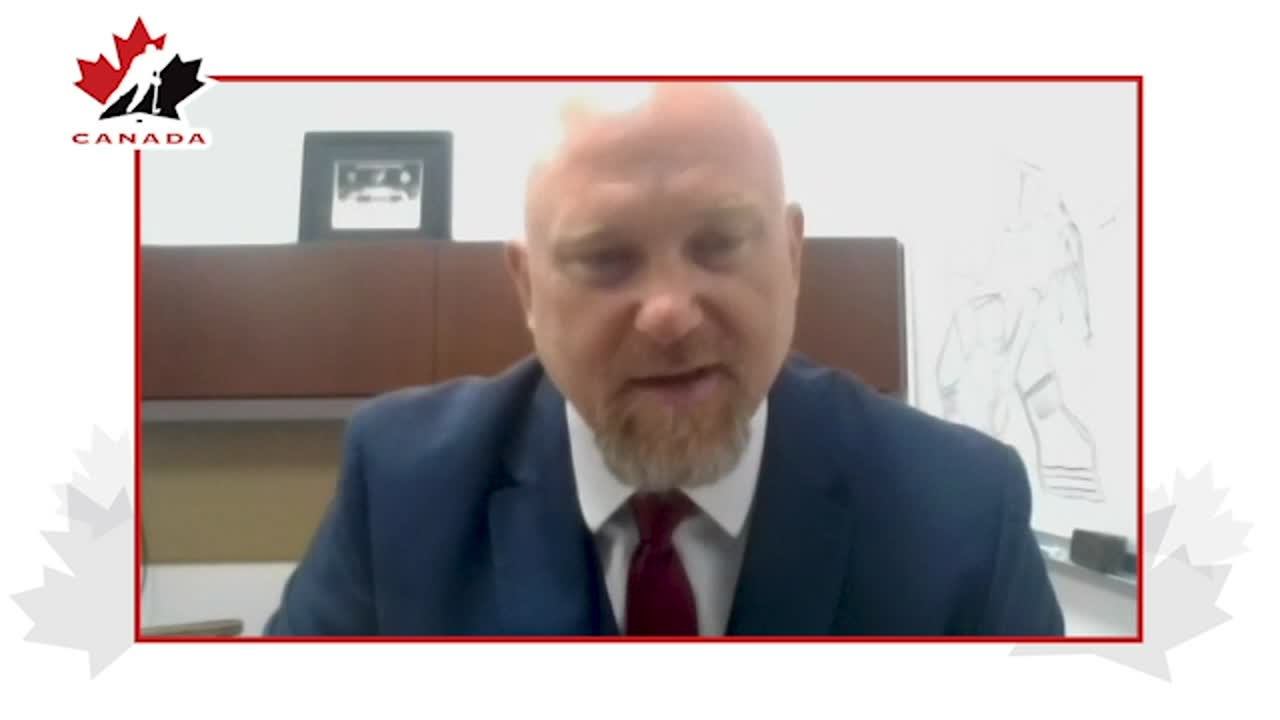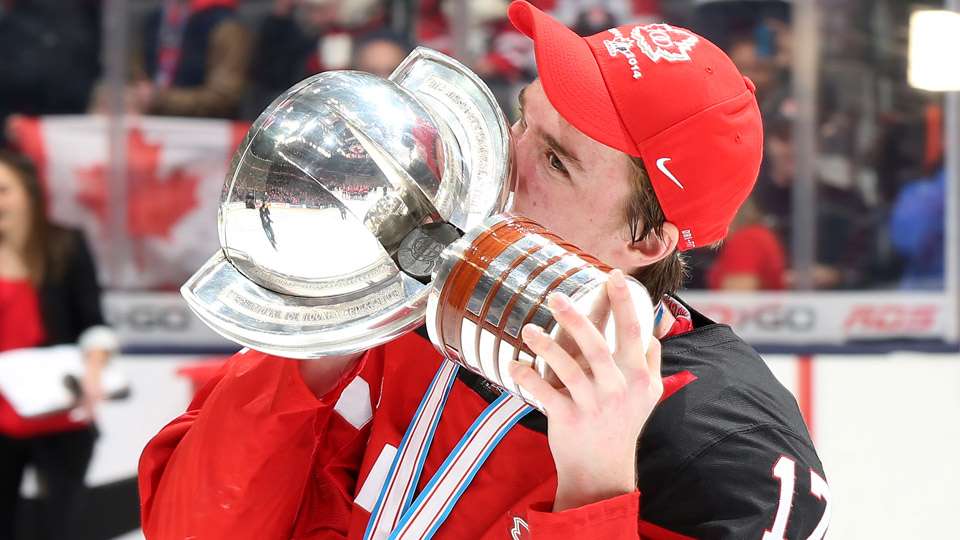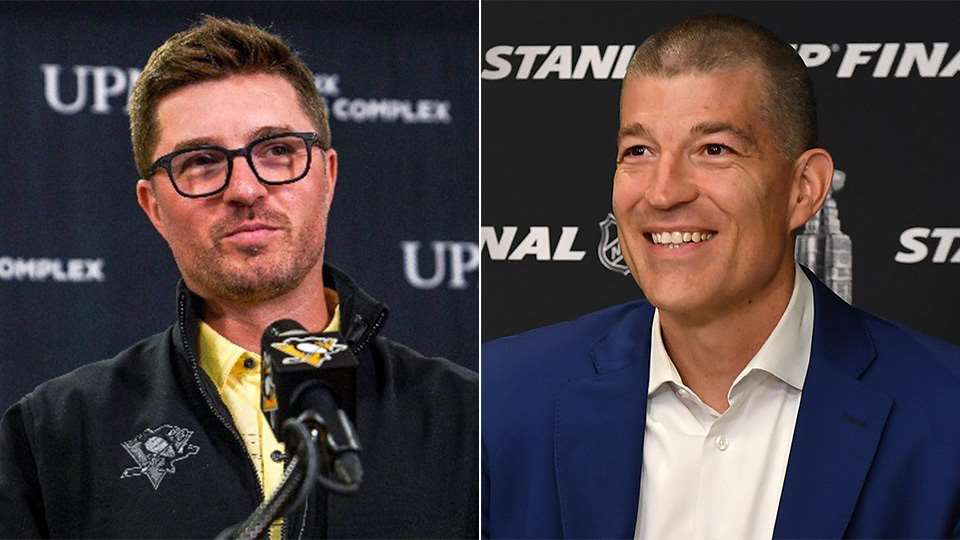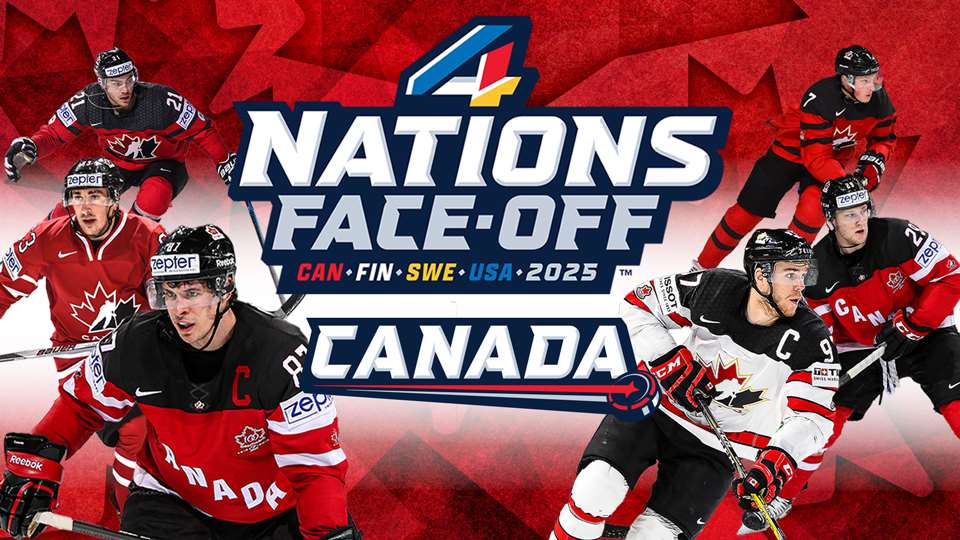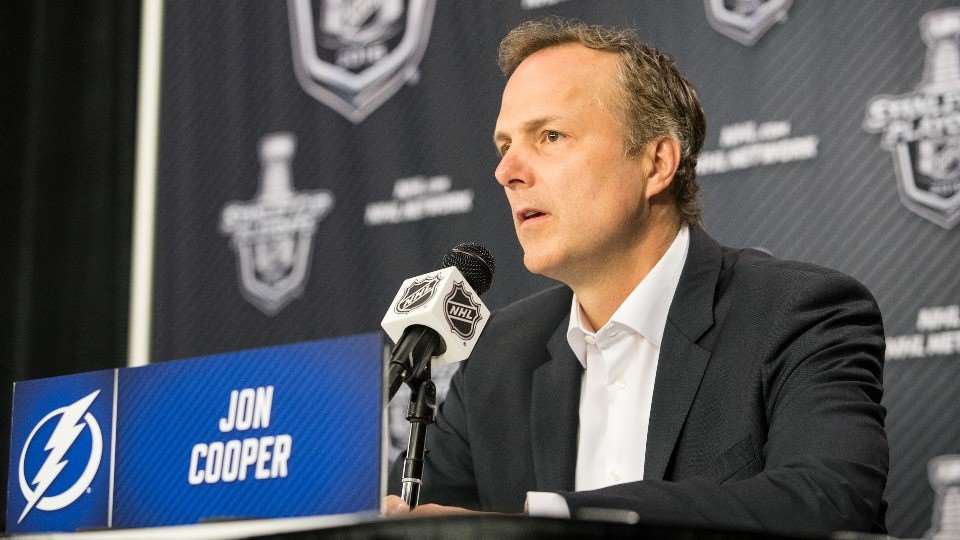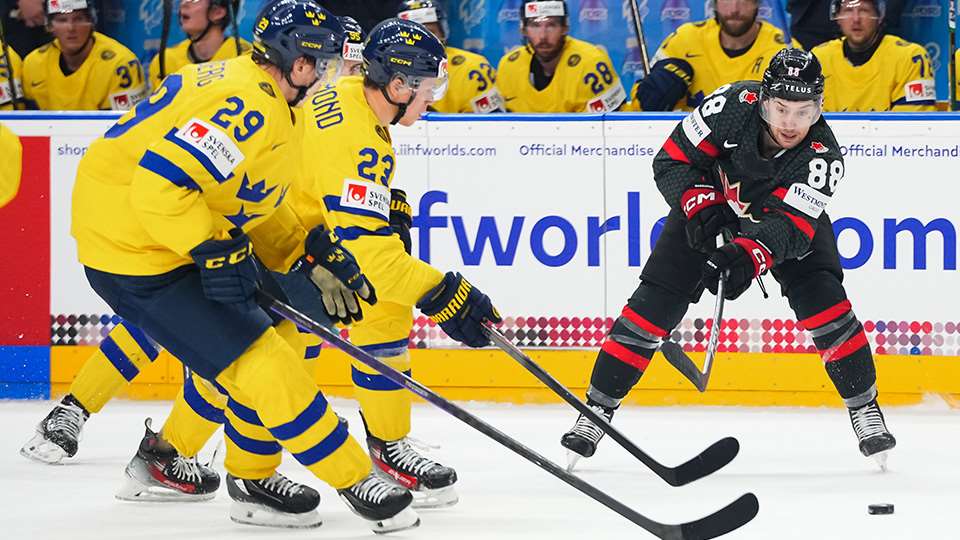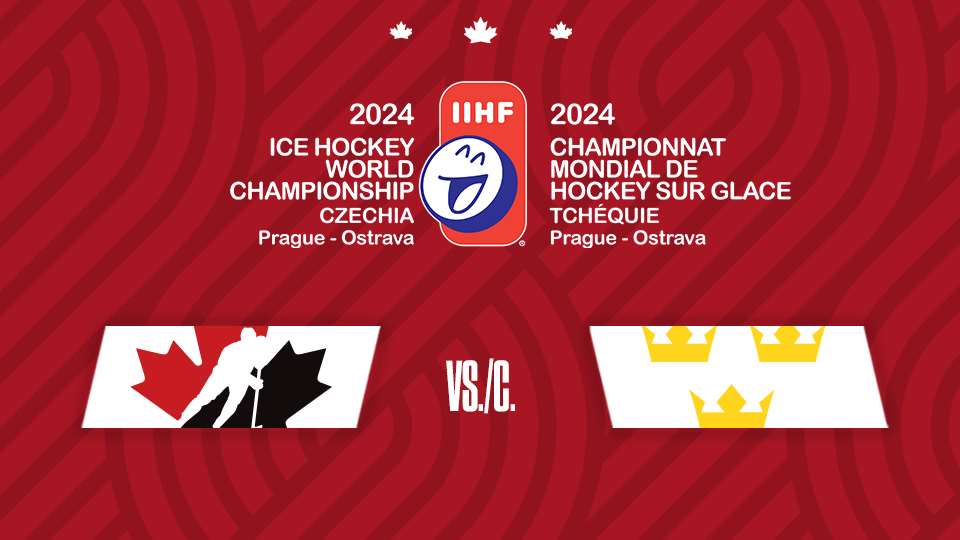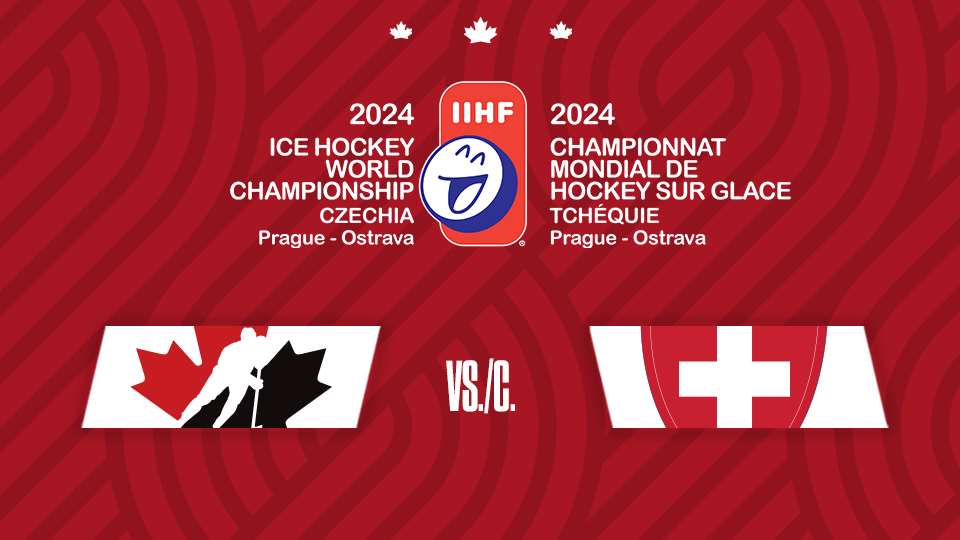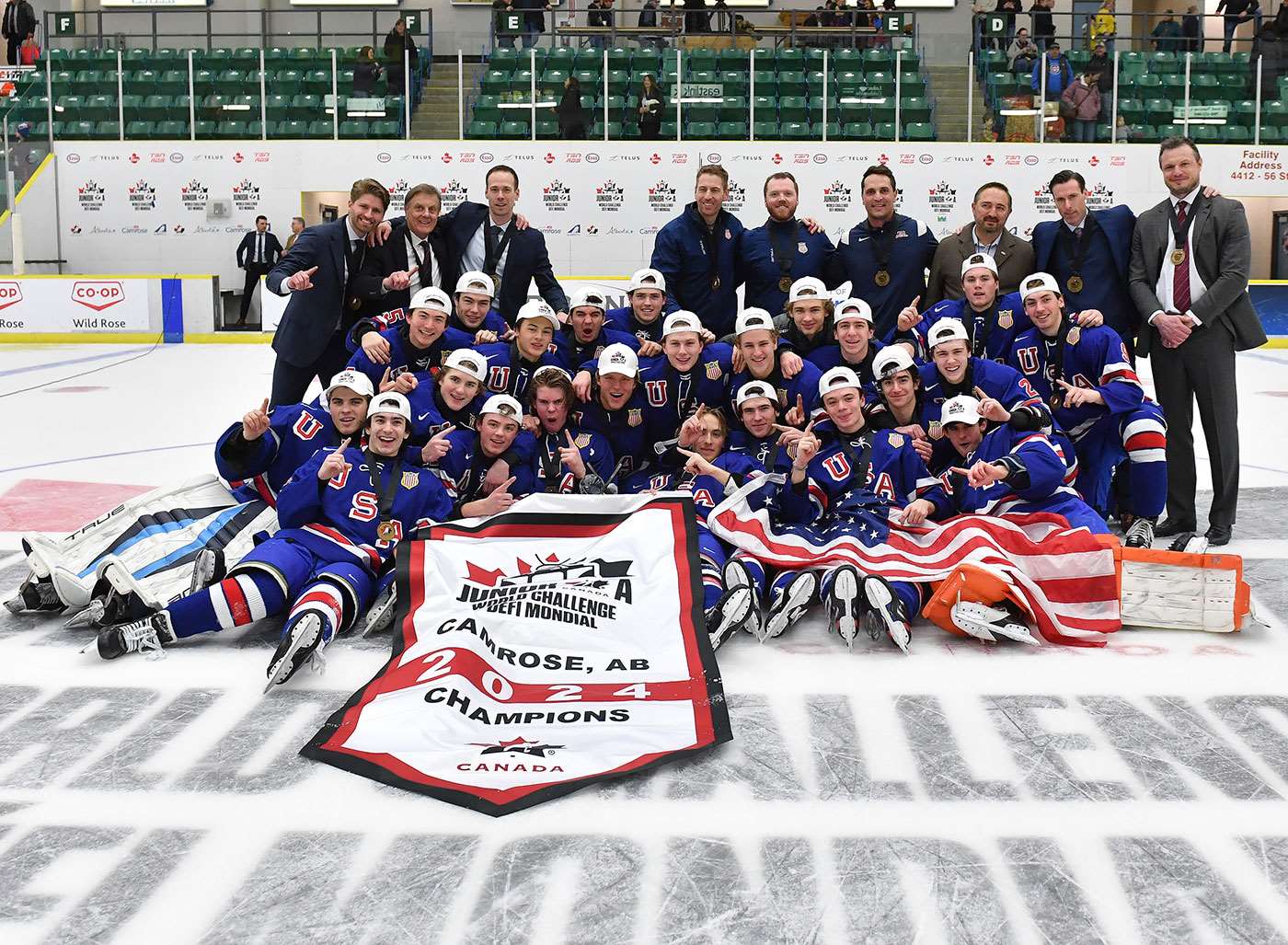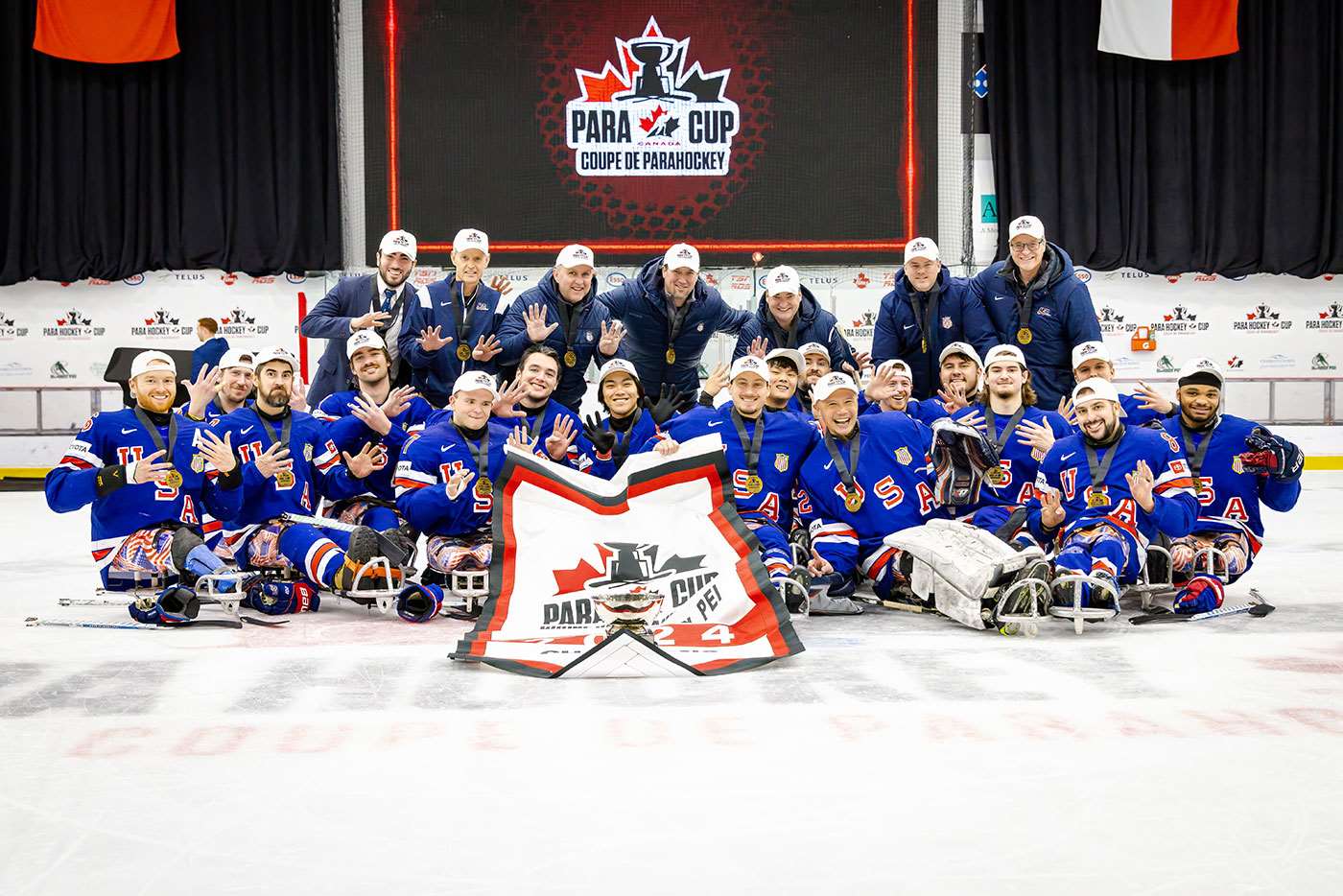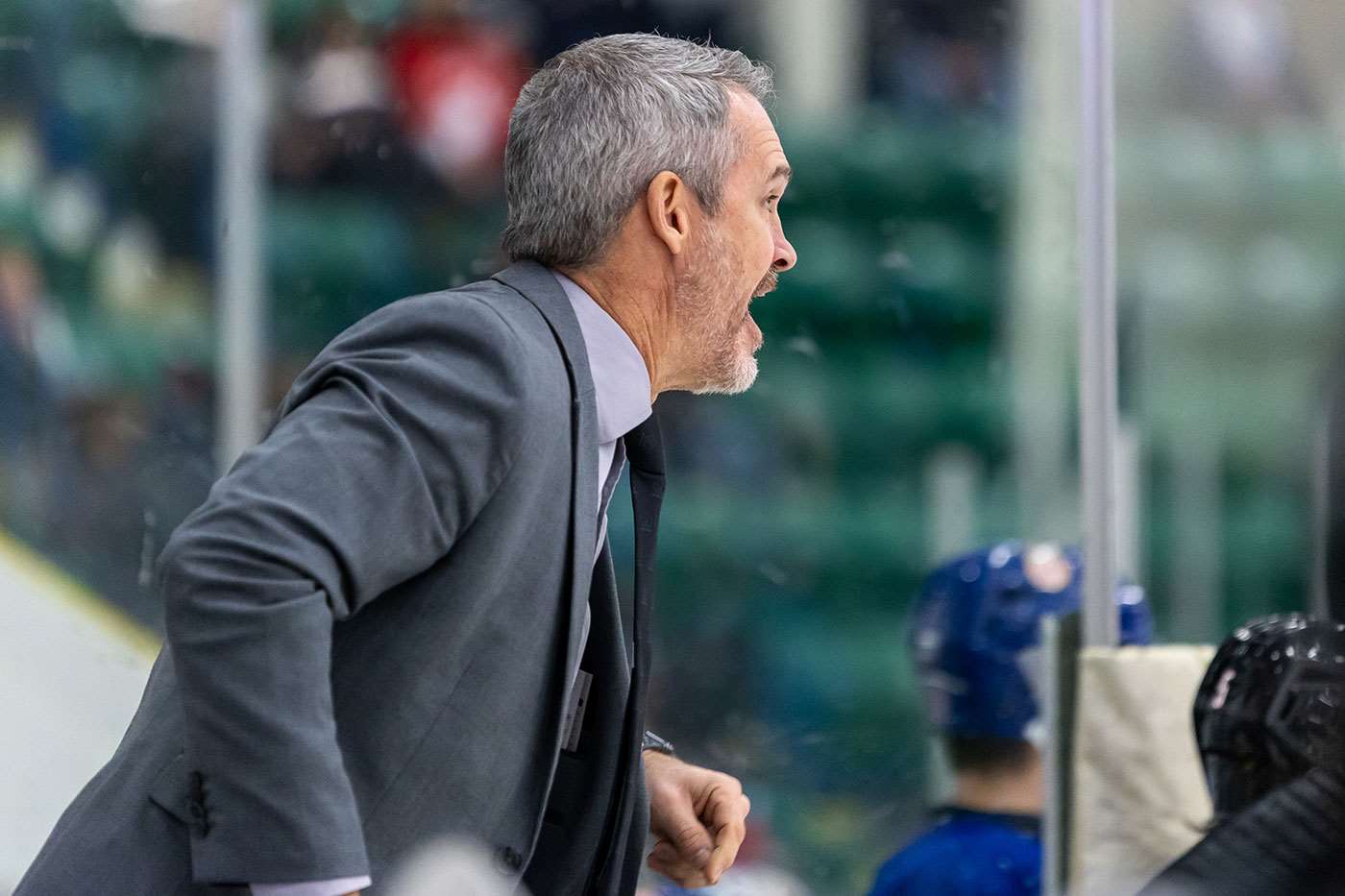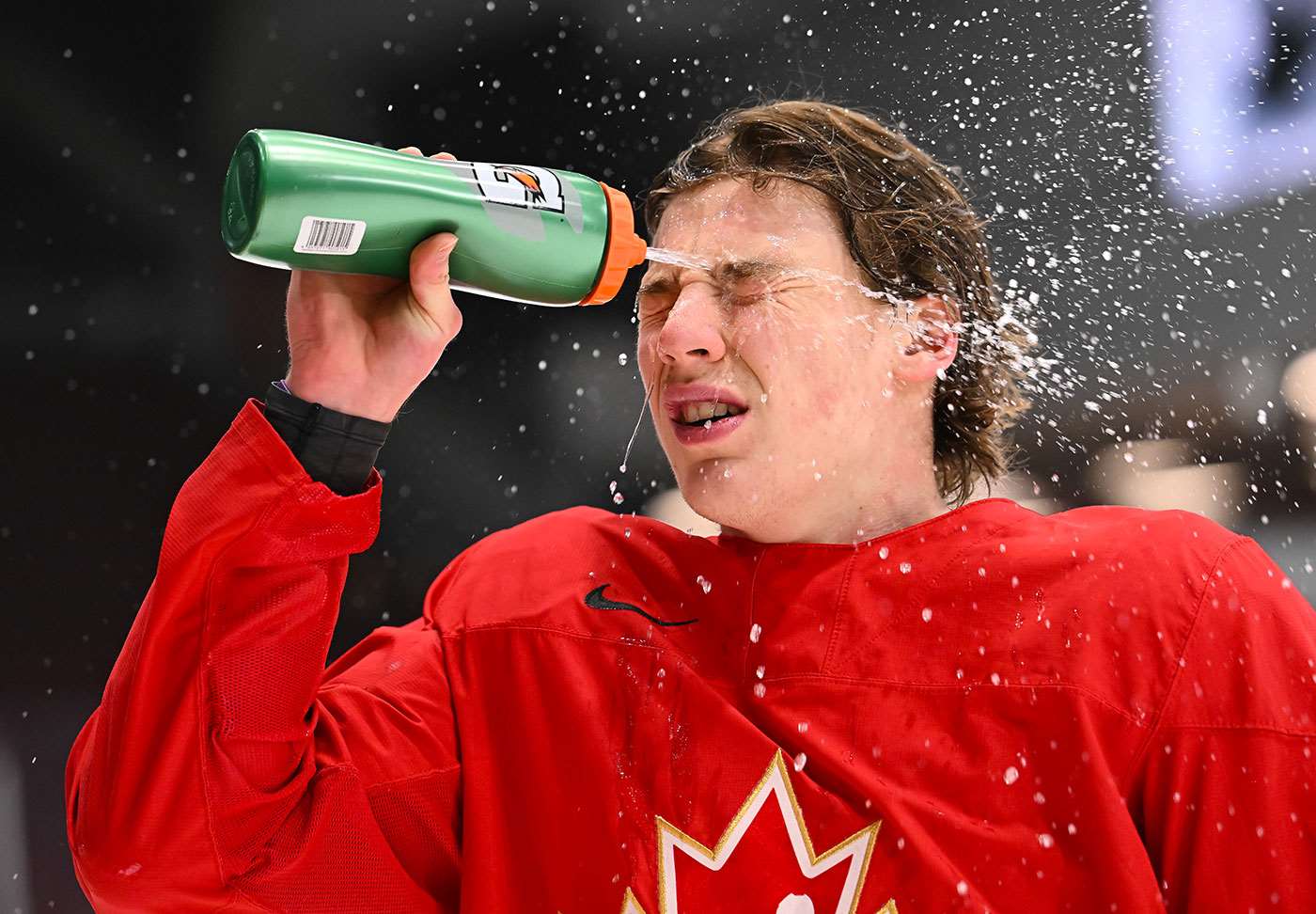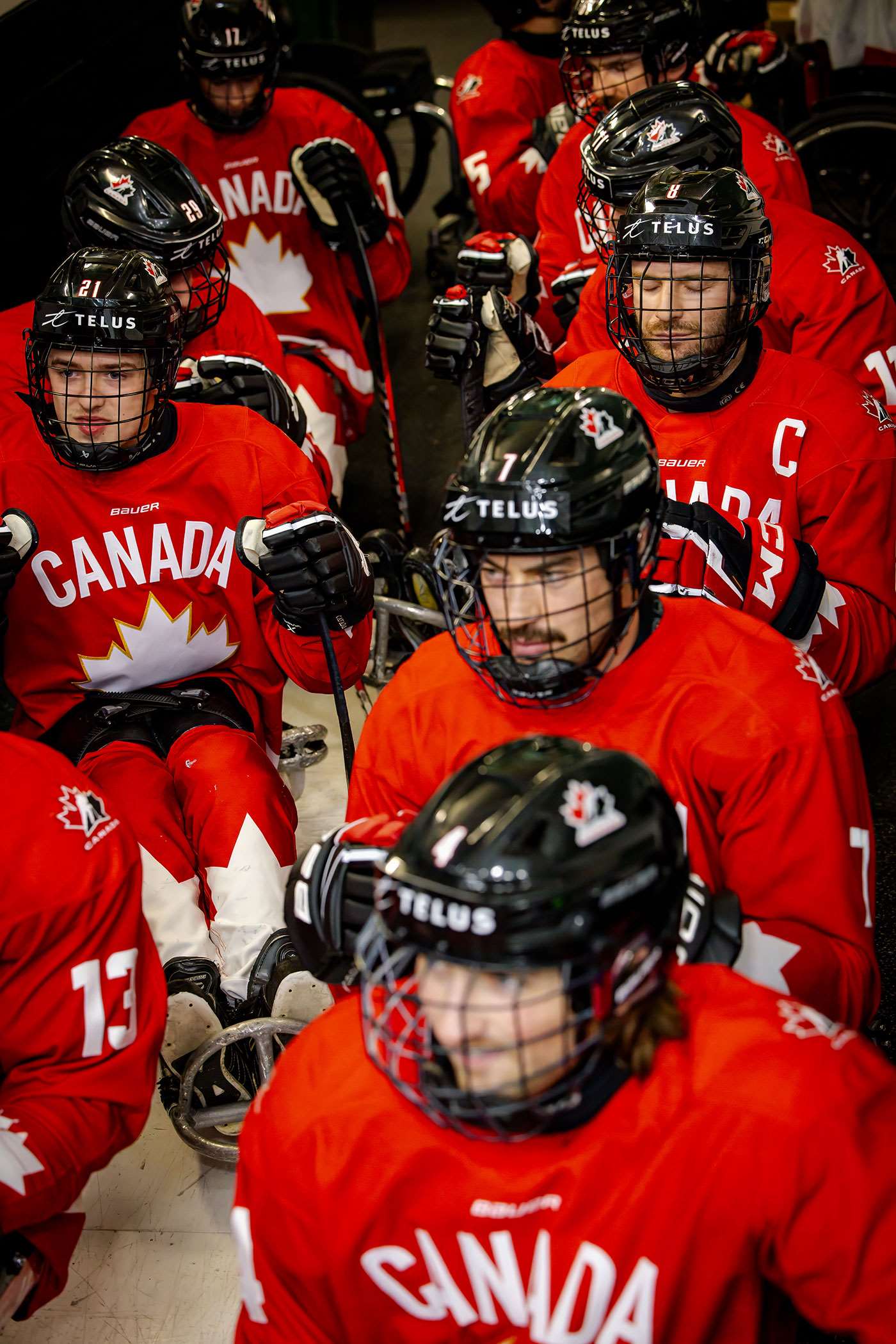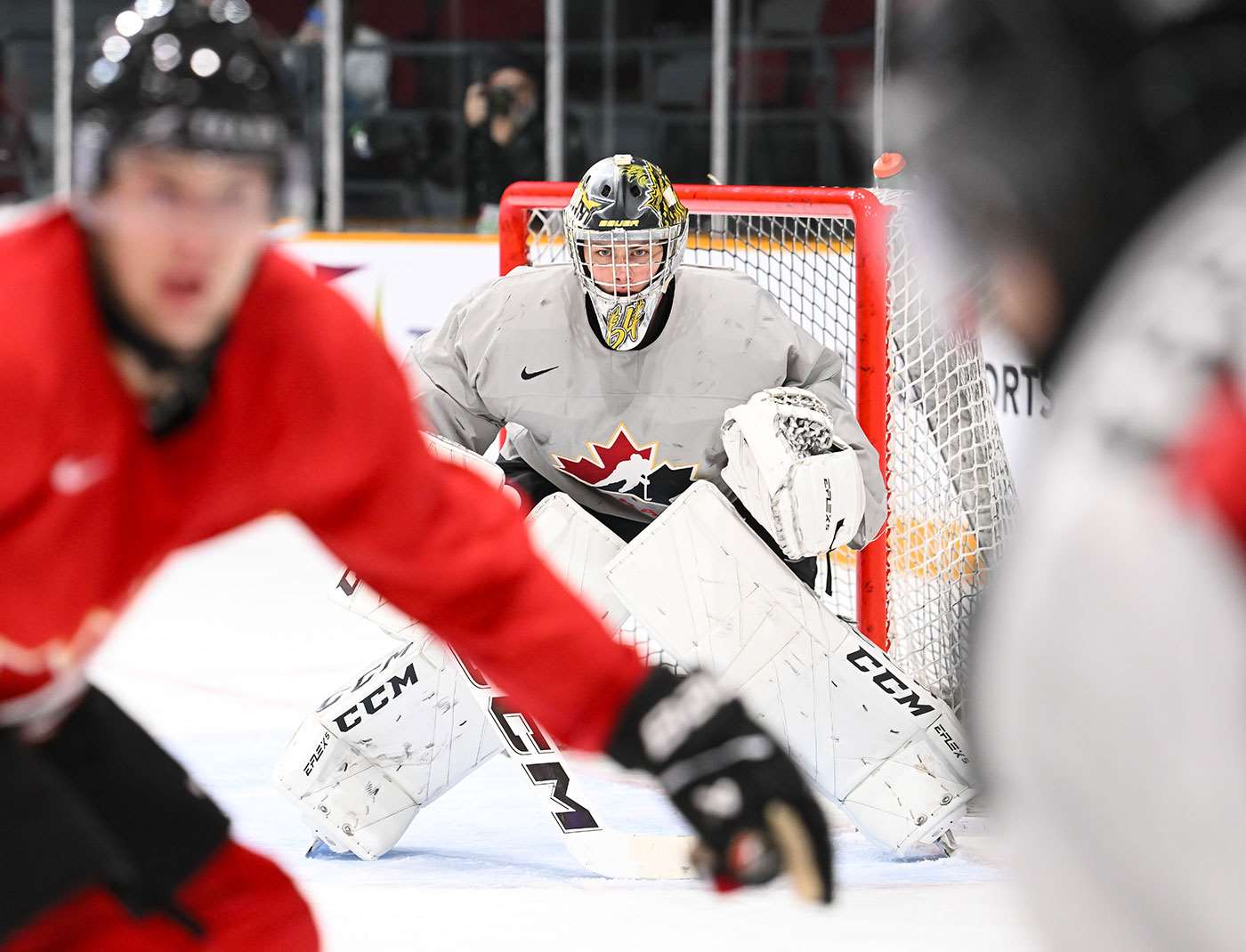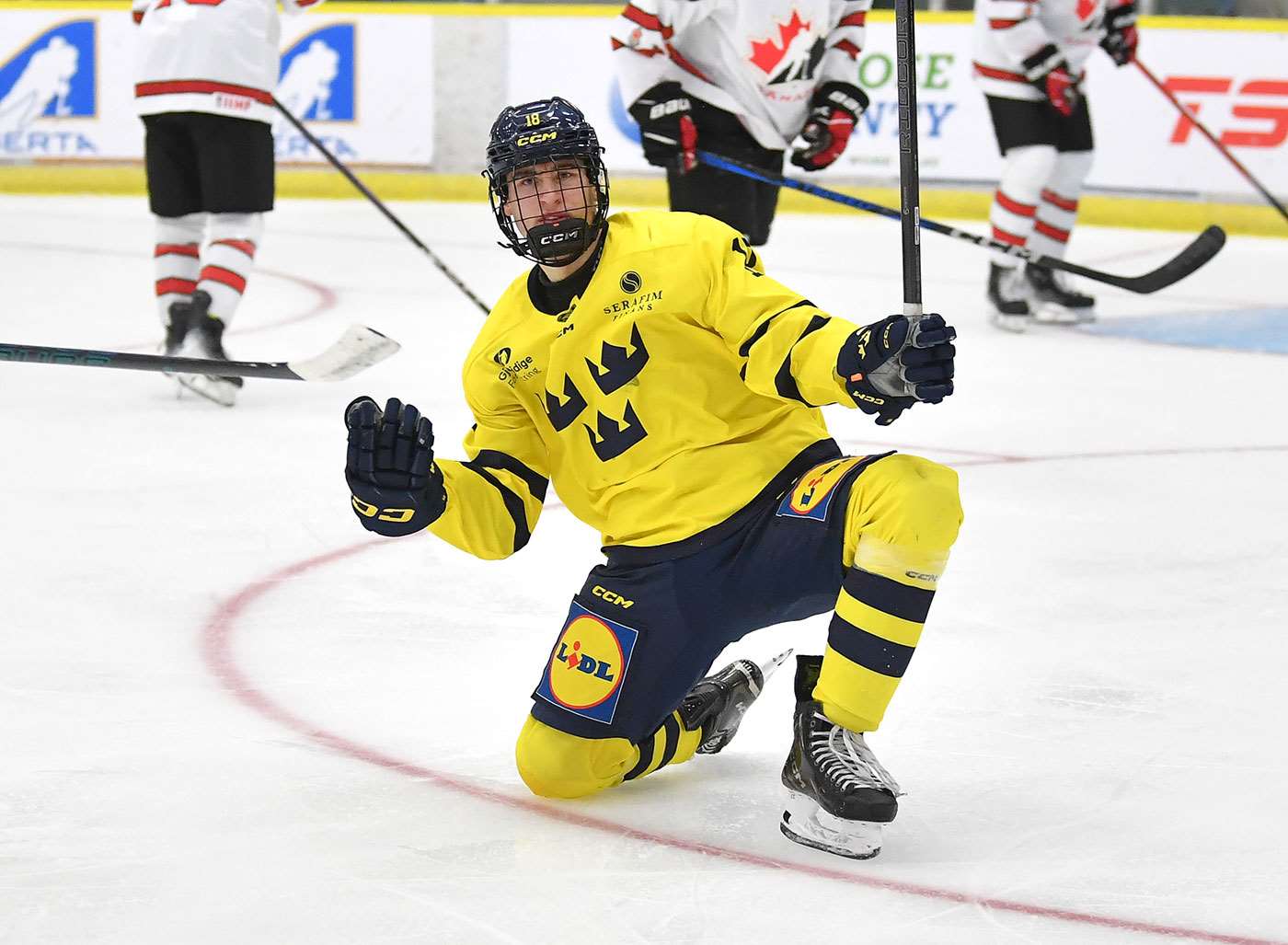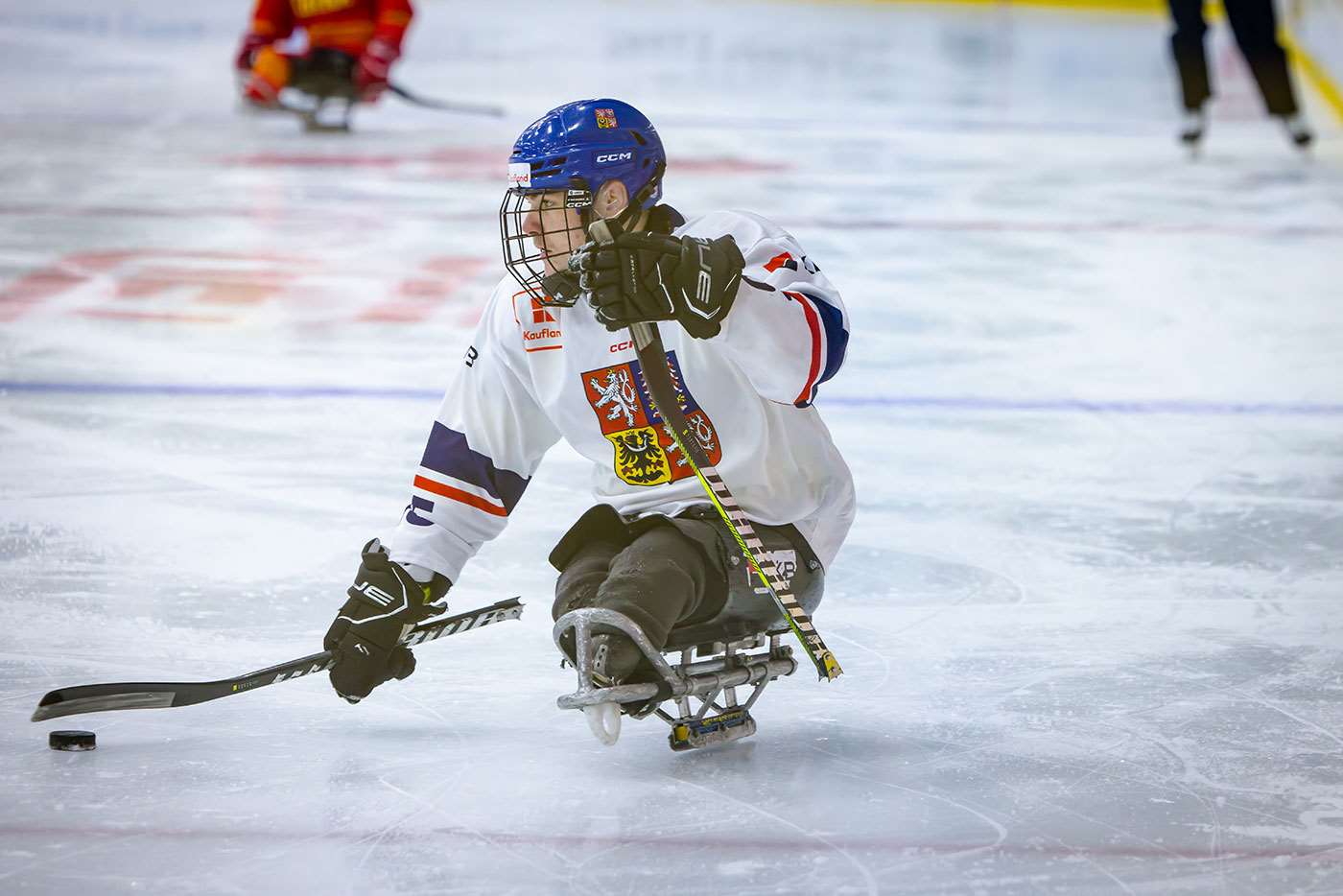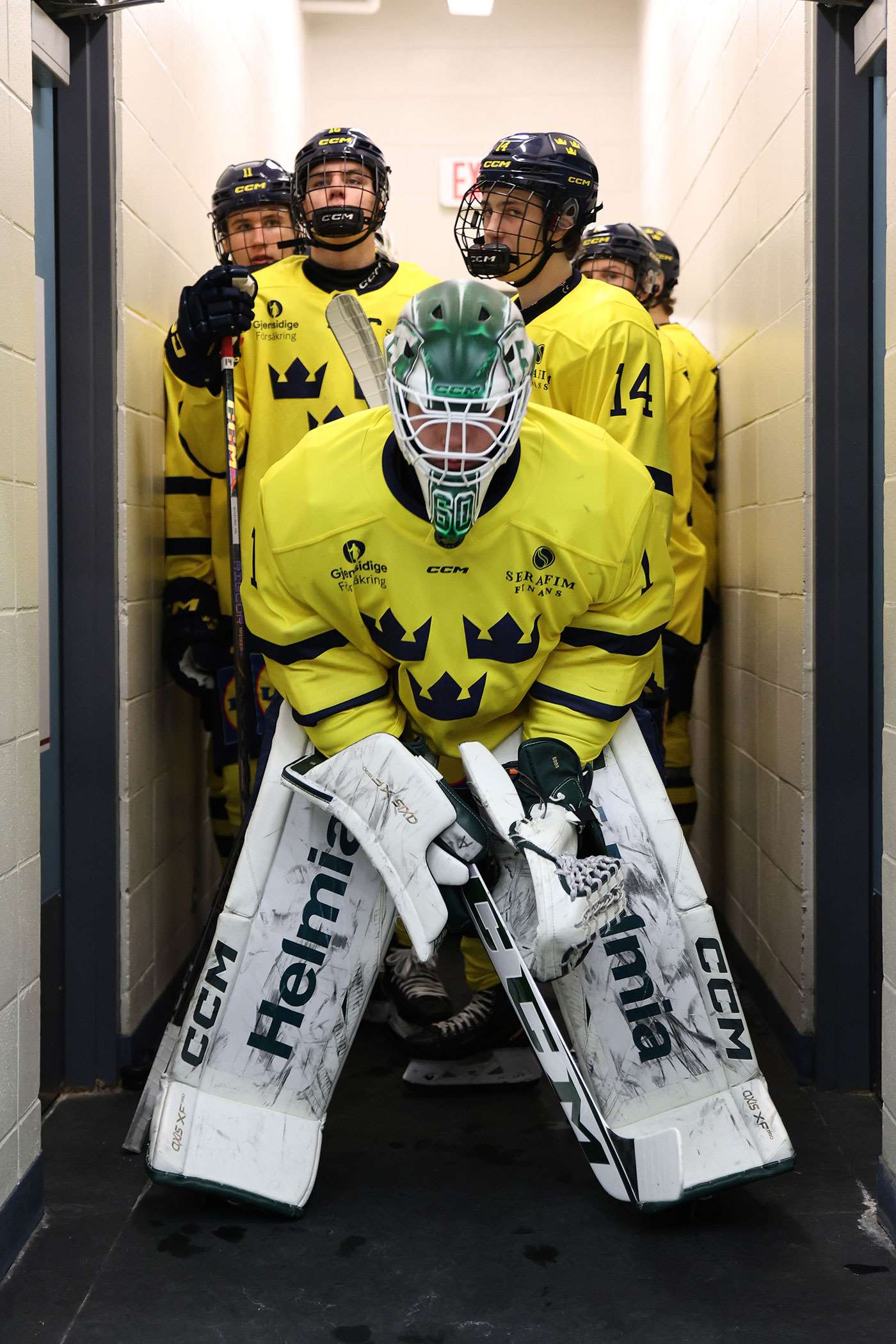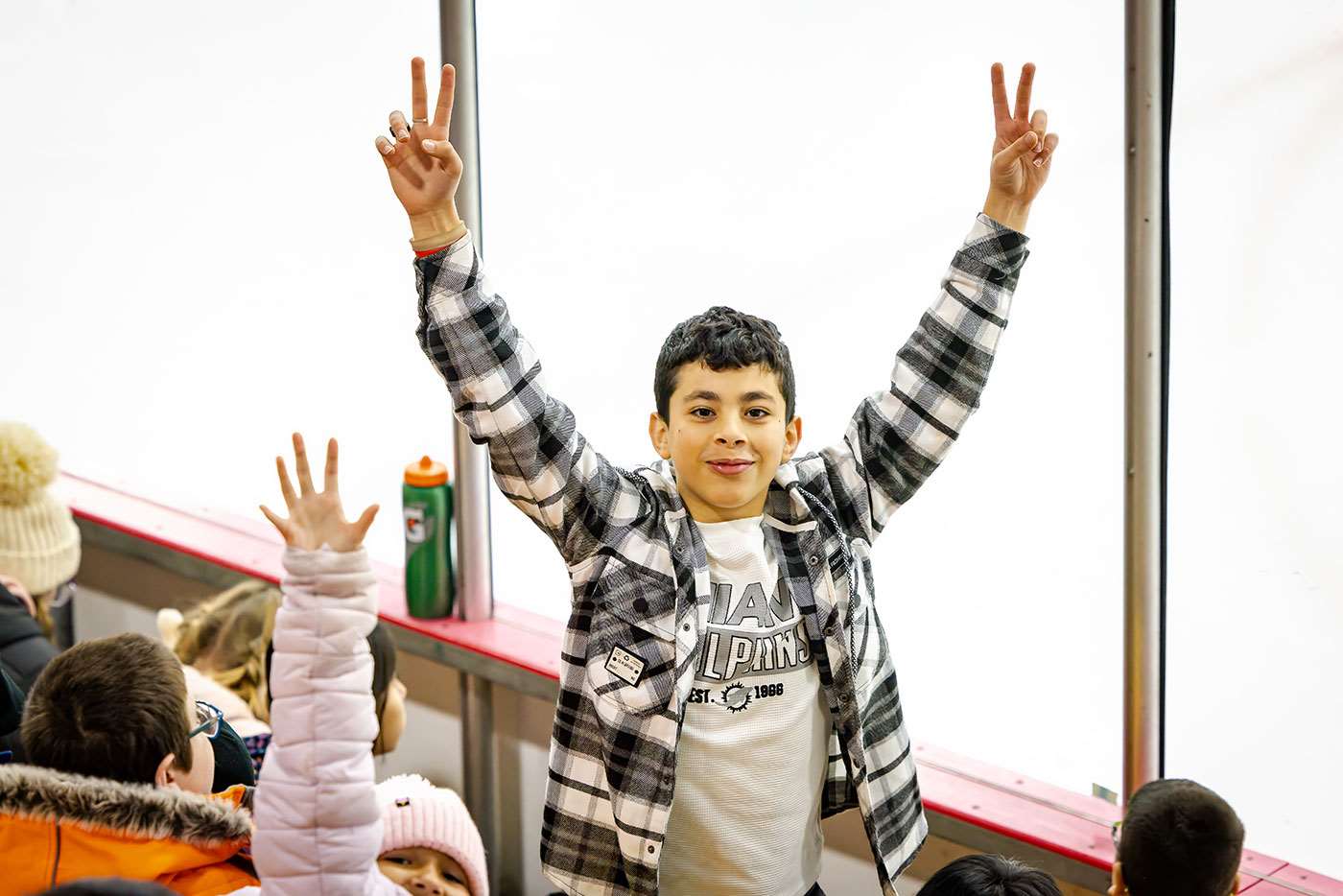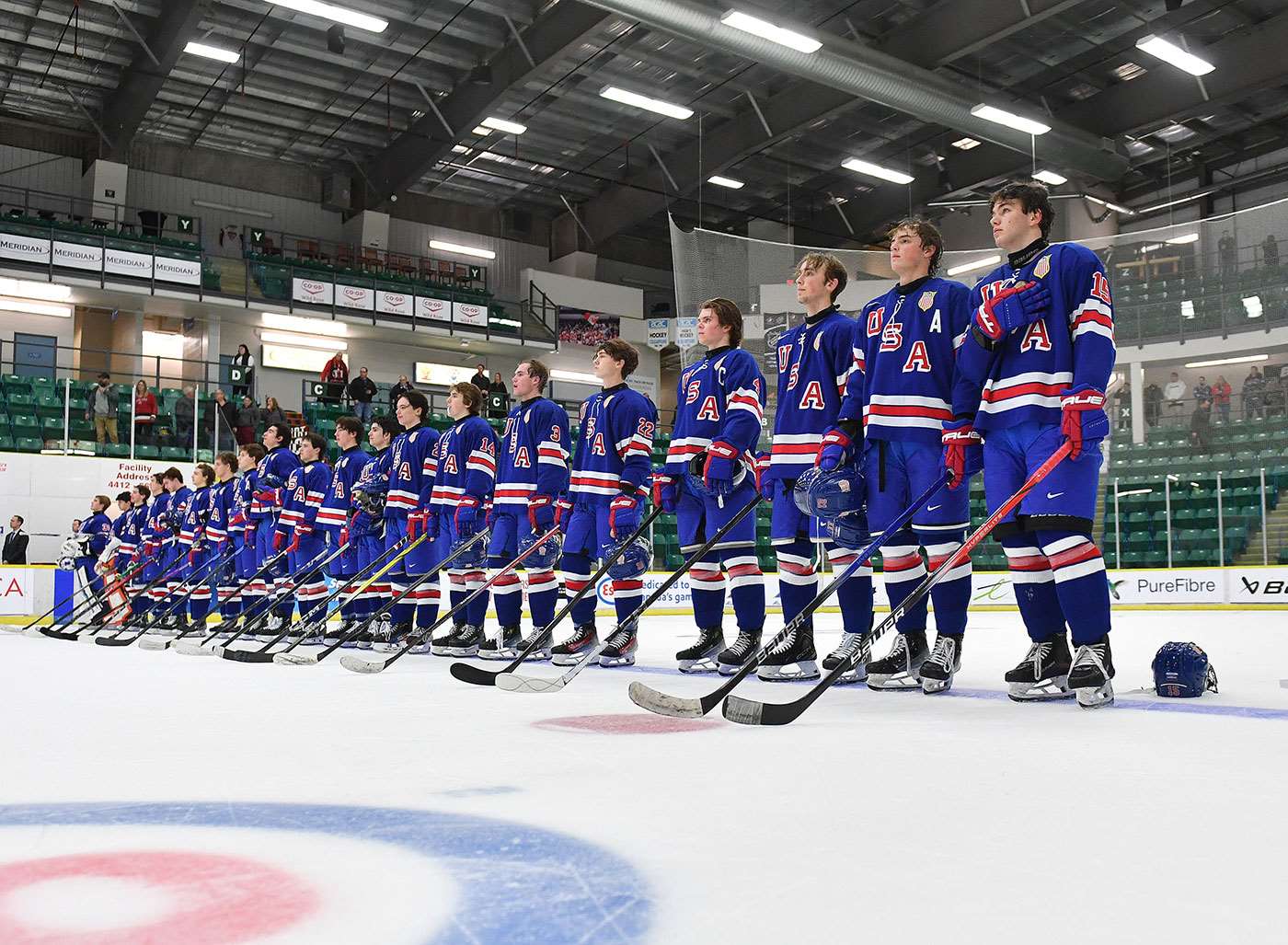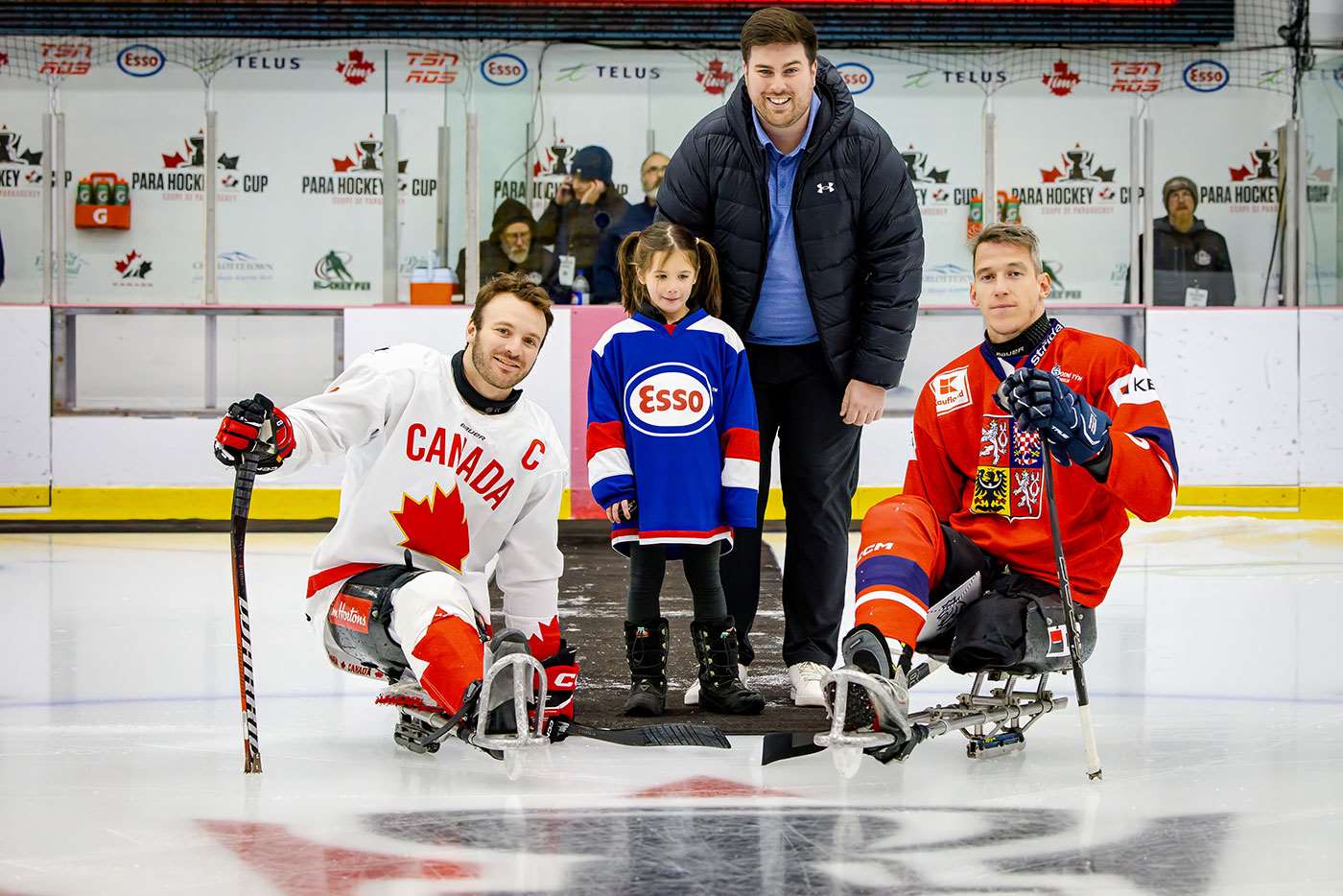
Schedule
Team Canada (Men)
IIHF World Junior Championship | Dec. 26, 2024-Jan. 5, 2025
Spengler Cup | Dec. 26-31, 2024
4 Nations Face-Off | Feb 12-20, 2025
IIHF U18 World Championship | April 23-May 3, 2025
IIHF World Championship | May 9-25, 2025
U17 World Challenge | Nov. 3-9, 2024
Hlinka Gretzky Cup | Aug. 5-10, 2024
Junior A World Challenge | Dec. 9-15, 2024
National Junior Team vs. USPORTS | Dec 12-13, 2024
Search
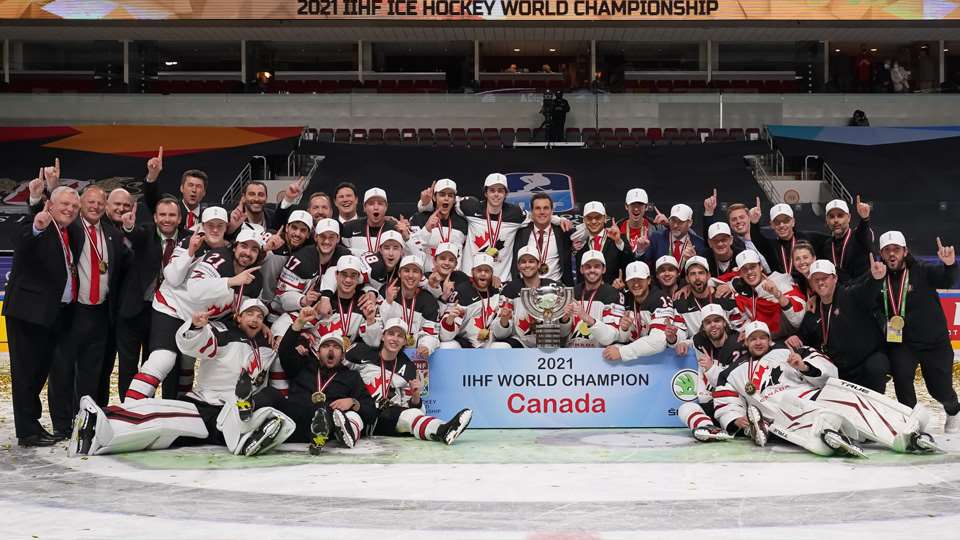
A comeback for the ages
Canada’s start at the 2021 IIHF World Championship was anything but typical, but its golden finish was one worthy of the history books

It was an unexpected start for Canada’s National Men’s Team at the 2021 IIHF World Championship and not the good kind. Losses to Latvia, the United States and Germany put the Canadians in an unfamiliar position – an 0-3 record and a steep hill to climb back into playoff contention, let alone to think about a 27th world title.
In over 60 years of world championship participation, Canada had never started without a win in three games. In fact, it had never started with even two losses. But there had also never been a tournament like the one played in 2021, with COVID-19 restrictions and mandatory quarantine periods, so really it was an unprecedented event all round.
Which is, perhaps, what made it so easy for the Canadians to keep faith that this was an obstacle that could be overcome.
“Being down and battling and [Andrew Mangiapane] coming over and turning things around … we just always believed” says Adam Henrique, the Canadian captain.
From the outside, everything seemed to change with the arrival of Mangiapane. The Calgary Flames forward flew over to Latvia following a disappointing first-round playoff loss and had to isolate for two weeks before joining the team. That meant he watched the first three games, the losses, from his hotel room. By the time he got to the dressing room, the team was down.
But definitely not out.
“Obviously his play coming over was a big addition to the team, but even his impact off the ice, he was a huge morale boost for the group,” Henrique explains. “He’s great in the locker room, he’s a funny guy, always had a smile on his face, a high-energy type of person and I think that really bled through the locker room with all the guys there.
“And his play on the ice was amazing. He became the MVP of the tournament, and we had some chemistry right away … so he is a huge reason we ended up being able to pull through.”
There was no specific moment or game Henrique could remember that things seemed to change, it was more a gradual coming together of the team, with lots of time spent playing cards together with visits outside of the hotel restricted because of the pandemic. But whatever it was, the wins started to come.
Victories over Norway, Kazakhstan and Italy got Canada back to even. But then came the defending champions, and Finland did not seem to want Canada back in the fold. A win and the red and white would be into the quarterfinals; any other result meant the Canadians would need some help.
“We had to play Finland in that last prelim game … we had a chip on our shoulder from losing [the gold in 2019] so we were trying to draw on that,” Henrique says. “To send it overtime and get the point, we still needed the help after that but … I think that’s when we knew we could do this thing.”
Despite taking a 3-2 loss in a shootout, the point still helped. Canada then ran to its room to watch the results of the Germany-Latvia game. If either team won in regulation, Canada would get into the quarters. But if the game was forced to overtime, both Germany and Latvia would advance, and Canada would be eliminated.
Germany scored twice in the first period, Latvia countered in the second but, despite many panicked moments for Canada and its fans, that was the end of the scoring. Canada was through.
“We were definitely keeping track of the standings and knew that our time could be limited so we just had to win our games and cross our fingers that everything else would fall into place which it did,” says Canadian forward Nick Paul. “We just came together as a group and weren’t going to take no for an answer.
At that point, it felt like the team was destined for something great. Canada took down the Russians 2-1 in overtime in the quarterfinal – on a Mangiapane goal set up by a terrific play by Troy Stecher – and the Americans 4-2 in the semis. Leaving just those pesky Finns with gold on the line.
The tight first period saw just a Finland goal from Mikael Ruohomaa, but Max Comtois got Canada on the board in the second. Petteri Lindbohm put Finland ahead early in the third before the captain countered for Canada at about the 12-minute mark, sending the game to overtime.
The Cinderella team was approaching midnight, with Paul in the defensive zone taking a faceoff.
“I kind of lost the faceoff,” Paul recalls. “But I read [the Finnish centre] was going to the defence so I put my stick down and [the puck] hit it, so springing a two-on-one with Connor Brown, and I know when you give Brownie the puck he makes good things happen.
“I slid it over to him early and it got mixed up in his skates, but he still made a beautiful pass back and I could have closed my eyes to put that one away. It was right on the tape and there was no goalie in sight.”
Henrique’s memory of the golden goal is a little more succinct.
“Thank god,” he laughs. “It was a defensive zone faceoff and Pauly goes ahead, and you just never see that!
“But it led to the two-on-one … and I can’t even explain the feeling on the bench was relief and we just couldn’t believe it. We had actually won after everything that had happened in the tournament … it will be a moment I will never forget in my hockey career.”
It may not have been the start expected of a hockey nation as renowned as Canada, but the ending certainly exceeded expectations and will likely be a story told a little more often than others.
The greatest Canadian comeback in IIHF World Championship history.
For more information: |
- <
- >

















